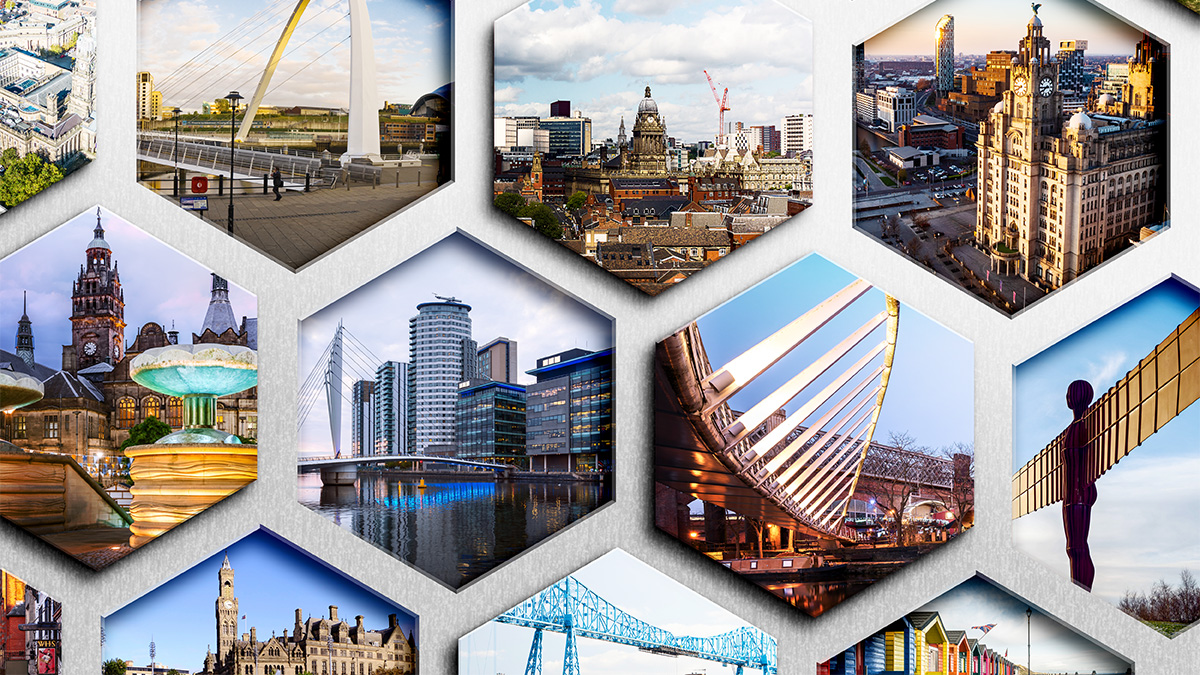
The green transition has dominated recent press reports and political agendas, with ambitious net-zero targets driving fundamental shifts in the way we work and live. As climate change becomes more acute, there is a need for countries, societies and businesses to pool resources to preserve our planet – committing to action, collaboration and upskilling on a worldwide scale.
The task is mammoth and the potential fallout monumental. In my role as UK country head at the recruitment firm Adecco, the question I’m often asked is, how can small companies make a difference?
The path ahead on net zero
Sustainable development poses unique challenges for SMEs. Faced with increasing pressure to ‘go green’, many business owners are unsure or unaware of their role in the global transformation. A study by Lloyds Bank found that 77 per cent of small companies don’t have a plan to cut their carbon footprint in the next three years and 2.5 million SME employers don’t know what ‘net zero’ means.
Even for those ahead of the decarbonisation curve, acute skills shortages are stalling progress. In fact, we recently published a whitepaper showing that seven out of eight workers lack net-zero skills or experience. When it comes to emerging talent, the disconnect is again clear: 80 per cent of young people (aged 16 to 24) say they are more likely to choose to work for an organisation with a green agenda, yet only one in 10 currently have a clear understanding of what ‘green skills’ entail.
The struggle to source candidates with future-ready capabilities is not going away. In fact, talent scarcity issues are set to grow exponentially, with forecasts indicating that 725,000 green jobs will be created by 2030.
And while smaller employers may be hardest hit by the green skills shortfall, they’re bellwethers for all business types. They account for 99.9 per cent of all companies in the UK private sector and play a pivotal role in a successful low-carbon economy.
Without targeted plans to develop and attract green expertise within smaller organisations, the UK’s overall net-zero objectives are at risk.
Where to start on the net-zero journey
For smaller businesses, the journey to sustainability begins with prioritising their most powerful green asset: their people. Here’s a three-point plan to help with the first vital steps:
1. Make green careers clear and accessible
Green jobs are new to most people, so ensure job descriptions and training plans are clear to help workers visualise possible career pathways – and their level of security and stability.
Think about driving awareness and appeal of green careers by:
Boosting visibility of green skills opportunities: A Nesta study showed that 74 per cent of participants know the importance of green jobs, but fewer than half (43 per cent) had sight of relevant opportunities or knew where to look for them (42 per cent).
Increasing flexibility to make green roles more competitive: Young people in particular are already more motivated to engage with the green jobs market than their older counterparts. Providing work-from-home options can improve employee retention, reducing hiring and training costs in the long term.
Offering grants or loans covering either partial or full training costs: The Nesta study found that financial incentives would make green roles considerably more attractive to young workers.
2. Embrace diversity, equality and inclusion-led recruitment
Job postings requiring at least one green skill rose by 22.4 per cent between 2022 and 2023. However, the current share of green talent within the workforce stands at 12.3 per cent. Connecting with candidates from under-represented groups can help SMEs bridge the green skills gap and create fairer, more inclusive cultures.
A hiring strategy focused on equality, diversity and inclusion (EDI) delivers a range of benefits, including:
Innovation and creativity: Diverse teams bring together individuals with differing perspectives, experiences and problem-solving approaches. This diversity nurtures innovation and creativity, which are essential for developing green practices and sustainable solutions.
Access to a wider talent pool: DEI practices ensure that SMEs tap into a broader talent supply. By attracting individuals from different backgrounds, industries and demographics, your business can benefit from a rich array of green skills and expertise.
Community engagement: A diverse and inclusive approach is crucial for engaging with communities affected by environmental changes. Understanding and respecting various cultural perspectives drives more effective community outreach and collaboration, and the adoption of sustainable practices.
Social equity: The green transition should not exacerbate existing social inequalities. DEI strategies ensure that the benefits of the transition are distributed equitably, challenging systemic disparities and promoting social justice.
Resilience: A diverse and inclusive workforce enhances business resilience. Different viewpoints and skills contribute to more agile and robust operations, capable of withstanding challenges and uncertainties.
3. Use AI to simplify learning and development
Investing in employee development is critical to building a responsive green workforce, but training staff at scale can be complex and time-consuming. AI can speed the process, helping to quickly upskill workers and shape more sustainable working methods. AI-led options can offer:
Green workforce training: AI-powered e-learning platforms can provide tailored training programmes for individuals seeking green skills, covering areas such as renewable energy, energy efficiency and sustainable practices.
Job matching and placement: AI algorithms can analyse individuals’ skills and qualifications and match them with green job vacancies, facilitating a smoother transition for workers into roles that contribute to sustainability goals.
Skills gap analysis: AI tools can assess a workforce’s existing strengths and identify green skills deficits, helping build targeted training programmes to efficiently upskill employees.
Career pathway planning: AI-driven career guidance platforms allow workers to plan green career pathways by gauging the transferability of their current skills.
Automated green certification: AI systems can streamline the green skills certification process by automating the assessment of qualifications and competencies, making it easier for individuals to gain recognition for their expertise.
Don’t forget that how SMEs navigate the net-zero transformation could make or break the UK’s energy sovereignty, financial footing and competitive edge. By maximising partnerships, upskilling and reskilling programmes, and DEI initiatives, smaller businesses can access the kind of talent that will future-proof profit and productivity – and unlock the opportunities of a successful green transition.
Niki Turner-Harding is the UK and Ireland country head at Adecco.
Related and recommended

Rohan Blacker looks back at his time with e-commerce pioneer Sofa.com and explains the thinking behind his latest online furniture project

Leaders must realise the tech revolution can achieve its full potential only when human values remain central to change

A closer look at the Northern companies turning artificial intelligence into measurable business results

Many argue the five-day week is no longer fit for purpose, but can a four-day week really work for businesses?

